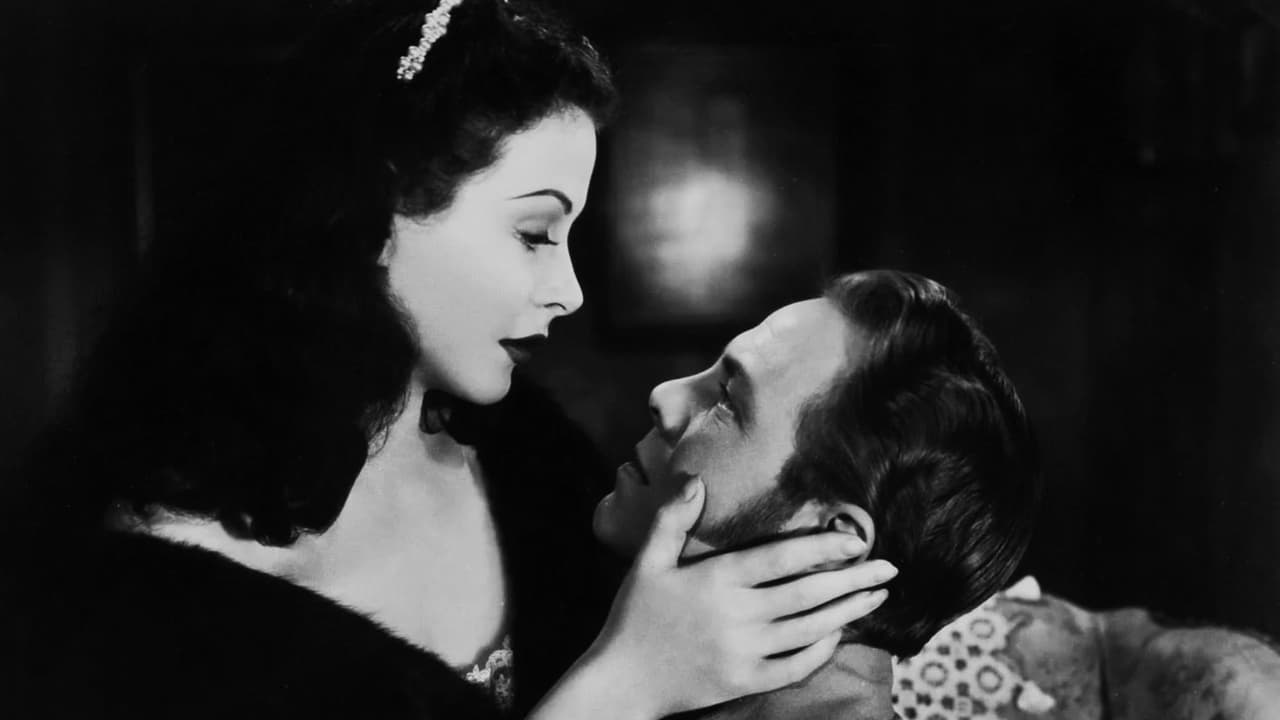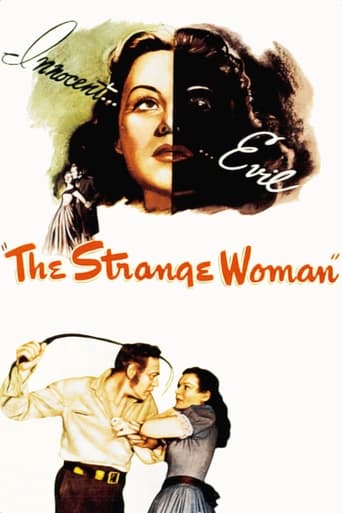Nonureva
Really Surprised!
Whitech
It is not only a funny movie, but it allows a great amount of joy for anyone who watches it.
Melanie Bouvet
The movie's not perfect, but it sticks the landing of its message. It was engaging - thrilling at times - and I personally thought it was a great time.
Billie Morin
This movie feels like it was made purely to piss off people who want good shows
Richard Chatten
Based on a 1941 novel by Ben Ames Williams, whose 'Leave Her to Heaven' had just provided the 40's Hollywood melodrama with one of its most memorably manipulative female psychos in the form of Gene Tierney as Ellen Berent. Hedy Lamarr chose this as her first independent production and cannily selected Edgar Ulmer to direct, who makes the most of the opportunities provided by unaccustomedly decent production values and a solid supporting cast, while giving Ms Lamarr her head to create a memorable femme fatale. In early 19th Century Maine, Hedy learns as a child how to manipulate boys for her own spiteful ends. So far, so promising - particularly as portrayed as a worldly, spiteful little vixen by Jo Ann Marlowe - but one apprehensively suspects she will inevitably prove less enjoyably sociopathic when she grows up to be Hedy Lamarr.Hedy herself as a young woman initially shows promise, wearing lots of lipstick and making eloquent use of her eyes while otherwise cultivating an intriguing stillness as she twists men round her little finger and declares "I don't want the youngest. I want the richest!". Learning to cultivate her feminine wiles in the face of brutal patriarchy in the person of her drunken and violent father (played by Inspector Lestrade, Denis Hoey), she promises to become a more alluringly damaged adult than she ultimately proves to be. SPOILER COMING: Ms Lamarr - whose accent increasingly slips as the film approaches its conclusion - loses her nerve towards the end of the film, when she falls victim to true love and dies misguided rather than Bad.The title is taken from Proverbs 5:3 and doesn't really fit Ms Lamarr; but 'The Wicked Lady' was already taken, although she doesn't prove that wicked either.
garylampkin
I recently bought a Noir Collector Set(Dark Film Mysteries) with 12 movies, and The Strange Woman was included which was one film I had never seen before. Many other reviews will give you the story line, and spoilers which I always hate to read before watching, so I tend to watch first and read reviews later to see if I agree with the opinions or not. If you like Hedy Lamar I think this is the movie for you. Except for the first 10 minutes where they show her character growing up, she appears in just about every scene. She is at her sultry, sexy and evil best in this one. This is strictly a 19th Century, small New England town melodrama, with very little action, but that's not bad here. The director here, Edgar Ulmer, directs the noir classic "Detour" also included in the set. Strange Woman is not as tough edged as Detour, but some scenes do excel, and even with her evil manipulations she can still get you to feel sympathetic towards her. Hedy shows great range in a few scenes, representing the character, Jenny's emotional complexities well. Also, a well cast supporting actor group that do a good job helping the plot move along. Hedy makes for a great femme fatale.
jjnxn-1
Made just after Hedy had departed MGM when she was still a top star and able to pursue roles with more depth than the glamour assignments handed her by Metro. She was one of the producers of this outing and selected Ulmer as director. Theirs was a contentious partnership but the result was one of Hedy's best performances.If you can put aside the fact that the lead character has a Viennese accent and her father an Irish one when they are both lifelong natives of Bangor, Maine then there is much to enjoy. Hedy, stunningly beautiful as always, plays a deeply conflicted woman well and though the film veers wildly from morality tale to lurid melodrama it is certainly more fun than a lot of more highly thought of films.
dougdoepke
An 1820's vixen climbs her way maliciously up the social ladder.The movie's got the gloss and the casting of a top studio production, maybe TCF. But it's not. Instead, the film is an independent production with Lamarr as a co-producer. I mention this because the result looks tailor-made for a Lamarr career move; at the same time, she does manage to prove she's more than just Hollywood's perfect face. Here, her conniving little vixen (Jenny) transits a number of emotional stages and male victims in fairly convincing style. However, unless I missed something, Jenny's inner guile fails to show up in any of the many close-ups. As a result, Jenny's deceit remains mainly in the script—the one performance flaw.The movie itself is an atmospheric potboiler, thanks to stylist Edgar Ulmer and art director Remisoff. The scenes may remain stage-bound, but the overall effect is compelling, a triumph of b&w expressiveness. Note too how the scenes get steadily darker as the film progresses and Jenny gets closer to the expected reckoning. Even when the screenplay meanders, which does slow things down, the visuals remain smoothly engaging. Then too, the logging camp setting should have been rethought. The sophisticated Sanders is simply not an outdoor type. Still, wonder of wonders, two of cinema's favorite cerebral baddies, Sanders and Brooke, get sympathetic roles, for a change. Actually, I expected Sanders to break into a cynical sneer at any moment, and maybe Brooke to revert to type with an icy glare. Anyway, it is an interesting cast, down to Hayward as the weakling Ephraim and little Jo Ann Marlowe as the meanest girl since Patty McCormack's Bad Seed (1956).I don't know if the film resulted in the kind of career break Lamarr was likely looking for, but it remains an entertaining morality tale, despite a spotty script and stage-bound settings.

